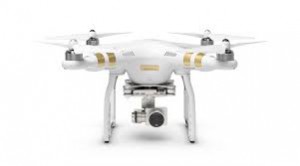
A Pew Research Center survey indicates that 8% of Americans say they own a drone , and more than half have seen a drone flying. However, “Americans vary in how they react to the sight of a drone nearby and what rules they think should be applied to them,” writes researcher Paul Hitlin.
“Asked how they would feel if they saw a drone flying close to where they live, relatively large shares of Americans say they would be curious (58%) or interested (45%). At the same time, around one-in-four (26%) say they would be nervous, and around one-in-ten say this would make them feel angry (12%) or scared (11%).”
These reactions translate into beliefs about drone regulations – and many of the survey reactions closely mirror current trends in state and local drone regulation.
“When it comes to what rules should apply to drone use, roughly half the public (54%) thinks drones should not be allowed to fly near people’s homes. Just 11% think this should be allowed, while 34% think it is OK in certain circumstances but not others. Around half of the public (53%) says private citizens should not be allowed to pilot drones near accidents or crime scenes, while a plurality (45%) says this practice should not be allowed at public events like concerts or rallies. By comparison, Americans are more broadly accepting of drone use by private citizens in locations such as beaches or public parks,” Hitlin says.
The problem, of course, is that future applications may require flight near homes for desirable services like emergency response, healthcare delivery, or package delivery. Once laws are enacted, they may be more difficult to unwind. But the Pew Research survey data offers some hope that Americans are open to the idea that regulations should be flexible based upon commercial application.
“Still, a significant number of Americans do not have hard and fast rules about whether people should be able to fly drones in various locations,” says the research article. “For each of the possible locations for drone use asked about in the survey, roughly one-quarter to one-third of Americans say it depends on the circumstances as to whether citizens should be allowed to pilot drones in that location or not.”
The survey data also indicated that older adults were far more likely to view drones negatively, with the vast majority feeling that drones should not be allowed to fly near homes. The younger generation was far more likely to be accepting of the sight of drones in the air.
Miriam McNabb is the Editor-in-Chief of DRONELIFE and CEO of JobForDrones, a professional drone services marketplace, and a fascinated observer of the emerging drone industry and the regulatory environment for drones. Miriam has penned over 3,000 articles focused on the commercial drone space and is an international speaker and recognized figure in the industry. Miriam has a degree from the University of Chicago and over 20 years of experience in high tech sales and marketing for new technologies.
For drone industry consulting or writing, Email Miriam.
TWITTER:@spaldingbarker
Subscribe to DroneLife here.

